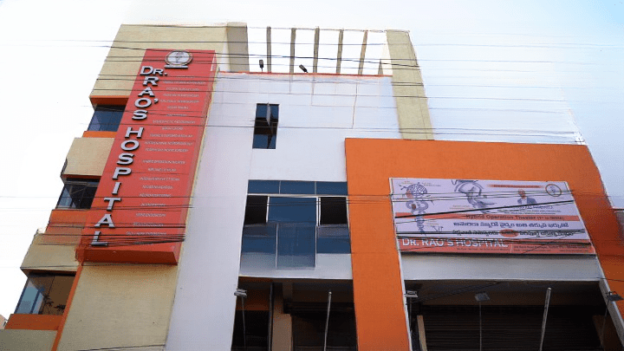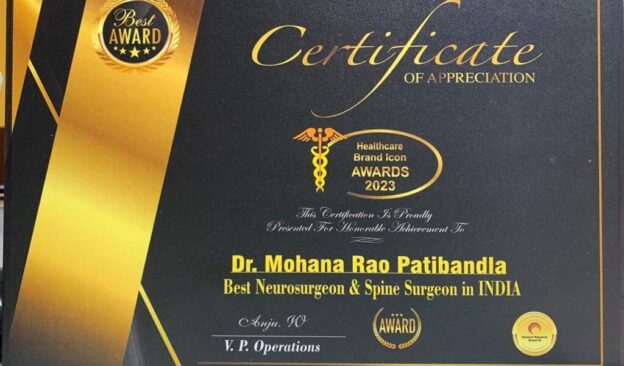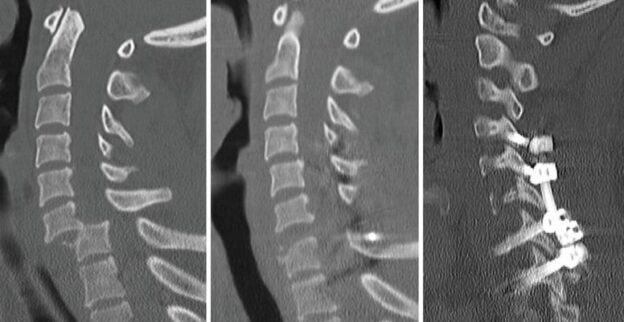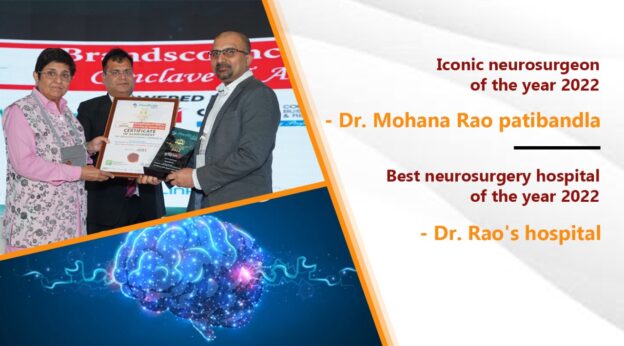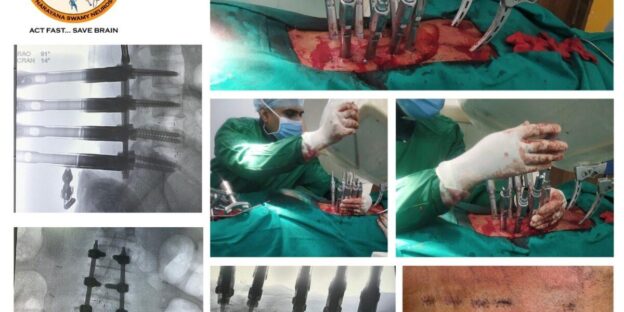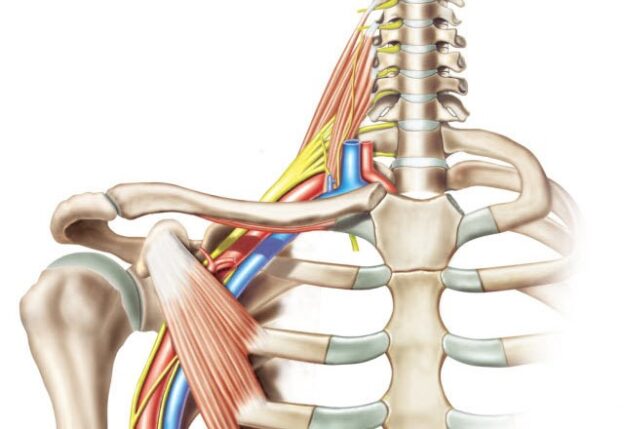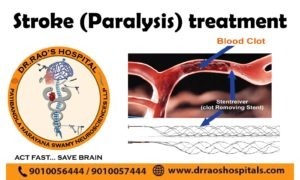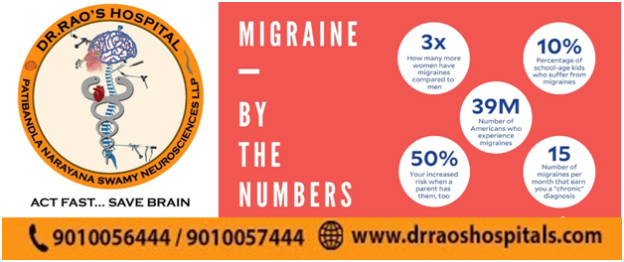Can Spinal Stenosis Be Treated Without Major Surgery?
Many patients diagnosed with spinal stenosis immediately worry that they will need a major spine surgery. A very common question asked in clinics is: “Can spinal stenosis be treated without major surgery?”
The reassuring answer is: yes, many cases of spinal stenosis can be managed without major open surgery, especially in the early and moderate stages. With advances in non-surgical care and minimally invasive spine techniques, treatment today is far more patient-friendly than it was in the past.
This detailed guide explains non-surgical treatment options for spinal stenosis, when surgery becomes necessary, and how modern minimally invasive approaches bridge the gap between conservative care and major surgery.
What Is Spinal Stenosis?
Spinal stenosis refers to narrowing of the spinal canal, which puts pressure on the spinal cord or nerves. It most commonly affects the lumbar spine (lower back) and the cervical spine (neck).
Common causes include age-related degeneration, disc bulges, ligament thickening, arthritis, and sometimes congenital narrowing.
According to information summarized by the Mayo Clinic, many patients experience symptoms gradually, allowing time for conservative and minimally invasive treatments.
Symptoms of Spinal Stenosis
- Lower back or neck pain
- Leg pain or arm pain
- Numbness or tingling in limbs
- Walking difficulty or claudication
- Weakness in arms or legs
The severity of symptoms often determines whether spinal stenosis can be treated without surgery.
Can Spinal Stenosis Be Treated Without Major Surgery?
Yes. Mild to moderate spinal stenosis can often be treated without major surgery. The goal of non-surgical treatment is to:
- Reduce pain and inflammation
- Improve mobility and walking capacity
- Prevent progression of nerve damage
However, treatment must be individualized. Not every patient responds the same way, and careful evaluation is essential.
Non-Surgical Treatment Options for Spinal Stenosis
1. Medications for Spinal Stenosis
Medications are often the first line of treatment. They may include:
- Pain relievers and anti-inflammatory drugs
- Medications for nerve pain
- Muscle relaxants (short-term)
These help control symptoms but do not correct the narrowing itself.
2. Physiotherapy and Exercise Programs
Physiotherapy plays a major role in spinal stenosis treatment without surgery.
- Strengthening core and back muscles
- Improving posture and flexibility
- Walking tolerance training
Regular, guided exercises often improve daily function and delay the need for surgery.
3. Lifestyle Modifications
- Weight management
- Activity modification
- Ergonomic changes at work and home
Small changes can significantly reduce symptom flare-ups.
Injection Therapy for Spinal Stenosis
Epidural Steroid Injections
Epidural steroid injections reduce inflammation around compressed nerves. They can provide temporary to medium-term pain relief.
Nerve Blocks and Selective Root Blocks
These injections help both in pain relief and in identifying the exact source of symptoms.
Radiofrequency Ablation
In selected cases, radiofrequency ablation can reduce chronic pain by interrupting pain signals.
Evidence summarized in PubMed shows injection therapies can be effective for symptom control in properly selected patients.
Minimally Invasive Treatments for Spinal Stenosis
When conservative treatment is insufficient but major surgery is not ideal, minimally invasive spine procedures offer an excellent middle path.
Endoscopic Decompression for Spinal Stenosis
Endoscopic decompression uses small incisions and specialized cameras to relieve pressure on nerves with minimal tissue damage.
Keyhole Spine Surgery
Keyhole techniques remove only the structures causing compression, preserving spinal stability.
Laser-Assisted Spine Procedures
In select cases, laser techniques may be used as part of a minimally invasive approach.
These techniques result in:
- Less pain
- Shorter hospital stay
- Faster recovery
When Is Surgery Necessary for Spinal Stenosis?
Major surgery may be necessary if:
- Severe or progressive weakness develops
- Walking becomes extremely limited
- Bowel or bladder symptoms appear
- Conservative and minimally invasive treatments fail
The decision for surgery is based on symptoms, imaging, and response to treatment—not just MRI findings.
Spinal Stenosis Treatment Decision Guide
| Severity | Recommended Approach |
|---|---|
| Mild | Physiotherapy, medications, lifestyle changes |
| Moderate | Injections, rehabilitation, minimally invasive options |
| Severe | Minimally invasive or surgical decompression |
Spinal Stenosis Treatment in India and Guntur
In India, especially in cities like Guntur, patients have access to advanced spine care at affordable costs.
At Dr. Rao’s Hospital; spinal stenosis treatment focuses on:
- Avoiding major surgery whenever possible
- Using minimally invasive and endoscopic techniques
- Individualized treatment planning
Under the leadership of Dr. Mohana Rao Patibandla, patients receive evidence-based spine care with an emphasis on preserving mobility and quality of life.
Expert Spine Care at Dr. Rao’s Hospital
- Dr. Rao’s Hospital Official Website
- Spine Surgery Department
- Neurology Services
- Contact Dr. Rao’s Hospital
- About Dr. Mohana Rao Patibandla
Frequently Asked Questions
Can spinal stenosis be cured without surgery?
While spinal stenosis cannot always be cured, many patients experience significant symptom relief with non-surgical and minimally invasive treatments.
Is walking good for spinal stenosis?
Yes. Controlled walking and physiotherapy exercises often improve symptoms and overall spinal health.
Why choose Dr. Rao’s Hospital for spinal stenosis treatment?
At Dr. Rao’s Hospital, led by Dr. Mohana Rao Patibandla, patients receive advanced, compassionate spine care using minimally invasive techniques.
Looking for Non-Surgical or Minimally Invasive Treatment for Spinal Stenosis?
If you are experiencing back or neck pain, walking difficulty, or symptoms of spinal stenosis, expert evaluation is essential.
Visit Dr. Rao’s Hospital or contact us at 📞 090100 56444 |📧 info@drraoshospitals.com
Success Rates of Non-Surgical and Minimally Invasive Treatment
One of the most important concerns patients have is whether treatment without major surgery actually works. The answer depends on correct patient selection, severity of stenosis, and adherence to treatment protocols.
- Mild spinal stenosis: 60–80% symptom control with conservative care
- Moderate stenosis: 50–70% improvement with injections + rehabilitation
- Targeted minimally invasive decompression: high functional success with faster recovery
Studies referenced in PubMed show that many patients avoid major surgery for years when treatment is started early and tailored properly.
Treating Walking Difficulty in Spinal Stenosis Without Major Surgery
Neurogenic claudication—leg pain or heaviness while walking—is a hallmark symptom of lumbar spinal stenosis.
Non-surgical strategies focus on:
- Flexion-based physiotherapy programs
- Posture correction during walking
- Targeted epidural or nerve root injections
- Gradual walking endurance training
Many patients notice improved walking distance and reduced leg pain
within weeks when these strategies are combined.
Is Non-Surgical Treatment Different for Cervical and Lumbar Stenosis?
Cervical Spinal Stenosis
Non-surgical treatment is suitable only when symptoms are mild and stable. Close monitoring is essential because cervical stenosis can affect the spinal cord.
Lumbar Spinal Stenosis
Lumbar stenosis responds better to conservative and minimally invasive care, especially when walking difficulty is the main complaint.
Treatment decisions are always based on symptoms—not MRI findings alone.
Why Regular Follow-Up Is Critical
Even when spinal stenosis is treated without major surgery, regular follow-up is essential to ensure safety and sustained improvement.
- Periodic neurological examination
- Monitoring walking distance and daily activity
- Repeat imaging only when clinically indicated
Early detection of progression allows timely intervention before permanent nerve damage occurs.
Common Myths About Spinal Stenosis Treatment
- Myth: Everyone with spinal stenosis needs surgeryFact: Many patients improve without major surgery
- Myth: Painkillers are the only non-surgical optionFact: Physiotherapy, injections, and minimally invasive procedures play major roles
- Myth: MRI severity always matches symptomsFact: Clinical symptoms matter more than scan findings
Quality of Life After Non-Surgical Treatment
With proper treatment, many patients return to:
- Independent walking
- Daily household activities
- Office or light physical work
- Active social life
Avoiding major surgery when safely possible often means less downtime, fewer risks, and better overall well-being.
Why Expert Spine Evaluation Matters
Choosing the right treatment for spinal stenosis is not about avoiding surgery at all costs—it is about choosing the right treatment at the right time.
At Dr. Rao’s Hospital, led by Dr. Mohana Rao Patibandla, every patient undergoes a structured evaluation that includes:
- Detailed symptom analysis
- Correlation of MRI findings with clinical signs
- Step-wise treatment planning
- Clear explanation of all available options
This approach ensures that major surgery is recommended only when truly necessary.
Spinal Stenosis Treatment: A Simple Decision Summary
- If pain is mild and stable → conservative care
- If walking is limited but strength is preserved → injections or minimally invasive options
- If weakness or bladder symptoms appear → surgical evaluation
Early consultation often makes the biggest difference.
Do You Have Spinal Stenosis and Want to Avoid Major Surgery?
If you are experiencing back or neck pain, leg pain while walking, or symptoms of spinal canal narrowing, expert evaluation can help determine whether non-surgical or minimally invasive treatment is right for you.
At Dr. Rao’s Hospital, Guntur,
advanced spine care focuses on preserving function, relieving pain, and avoiding major surgery whenever possible.
People Also Ask: Spinal Stenosis Treatment Without Major Surgery
Can spinal stenosis really be treated without major surgery?
Yes. Many cases of mild to moderate spinal stenosis can be managed without major surgery
using medications, physiotherapy, injections, and minimally invasive spine procedures. Surgery is usually reserved for severe or progressive cases.
What are the best non-surgical treatments for spinal stenosis?
Common non-surgical treatments include physiotherapy, posture correction, pain-relief and nerve medications, epidural steroid injections, nerve blocks, and lifestyle modifications to reduce symptom flare-ups.
Is walking good or bad for spinal stenosis?
Walking is generally beneficial for spinal stenosis when done in a controlled manner. Structured walking programs and physiotherapy can improve walking distance and reduce leg pain in many patients.
How long can spinal stenosis be managed without surgery?
Many patients manage spinal stenosis without major surgery for years, especially when treatment starts early and symptoms remain stable. Regular follow-up is important to monitor progression.
Are injections effective for spinal stenosis?
Epidural steroid injections and selective nerve root blocks can reduce pain and inflammation, providing temporary to medium-term relief. They are often combined with physiotherapy for better outcomes.
What is the difference between non-surgical and minimally invasive treatment?
Non-surgical treatment focuses on medications, physiotherapy, and injections. Minimally invasive treatment involves small-incision procedures that directly relieve nerve compression without major open surgery.
When does spinal stenosis definitely require surgery?
Surgery is considered when there is progressive weakness, severe walking limitation,
bowel or bladder symptoms, or when non-surgical and minimally invasive treatments
fail to control symptoms.
Can spinal stenosis get worse if surgery is avoided?
In some patients, spinal stenosis remains stable for long periods. In others, symptoms may gradually worsen. This is why expert evaluation and regular monitoring are essential.
Is non-surgical treatment safe for elderly patients with spinal stenosis?
Yes. Non-surgical and minimally invasive treatments are often preferred in elderly patients
as they avoid the risks of major surgery while improving pain and mobility.
Why choose Dr. Rao’s Hospital for spinal stenosis treatment?
At Dr. Rao’s Hospital, led by Dr. Mohana Rao Patibandla, patients receive step-wise, evidence-based care focused on avoiding major surgery whenever safely possible, using advanced minimally invasive spine techniques.
Advanced Neurosurgery in Guntur
Comprehensive Neurology Care in Guntur
Advanced Spine Surgery in Guntur
Minimally Invasive Brain and Spine Surgery
Pediatric Neurosurgery in Guntur
Advanced Epilepsy Surgery in Guntur
పెద్ద శస్త్రచికిత్స లేకుండా స్పైనల్ స్టెనోసిస్కు చికిత్స చేయవచ్చా?
స్పైనల్ స్టెనోసిస్ (Spinal Stenosis) అని నిర్ధారణ అయిన వెంటనే చాలా మంది రోగుల మనసులో
ఒకే ప్రశ్న వస్తుంది — “ఇది తప్పనిసరిగా పెద్ద శస్త్రచికిత్సతోనే నయం చేయాలా?”
సంతోషకరమైన విషయం ఏమిటంటే —
స్పైనల్ స్టెనోసిస్ ఉన్న ప్రతి రోగికి పెద్ద ఆపరేషన్ అవసరం ఉండదు.
ప్రత్యేకంగా తేలికపాటి (Mild) మరియు మధ్యస్థ (Moderate) స్థాయిలో ఉన్నవారికి శస్త్రచికిత్స లేకుండానే లేదా మినిమల్లి ఇన్వేసివ్ పద్ధతులతో లక్షణాలను సమర్థవంతంగా నియంత్రించవచ్చు.
ఈ బ్లాగ్లో మీరు తెలుసుకోబోయేది:
- స్పైనల్ స్టెనోసిస్ అంటే ఏమిటి?
- శస్త్రచికిత్స లేకుండా చేసే చికిత్సలు ఏమిటి?
- ఎప్పుడు శస్త్రచికిత్స అవసరం అవుతుంది?
- మినిమల్లి ఇన్వేసివ్ చికిత్సల పాత్ర ఏమిటి?
స్పైనల్ స్టెనోసిస్ అంటే ఏమిటి?
స్పైనల్ స్టెనోసిస్ అనేది వెన్నెముక లోపల ఉన్న నరాల మార్గం (Spinal Canal) ఇరుకుగా మారడం వల్ల ఏర్పడే సమస్య. ఈ ఇరుకుదనం కారణంగా నరాలపై ఒత్తిడి పడుతుంది.
ఇది ఎక్కువగా:
- కిందివెన్ను (Lumbar Spine)
- మెడ భాగం (Cervical Spine)
లో కనిపిస్తుంది.
సాధారణ కారణాలు:
- వయస్సుతో వచ్చే డిజెనరేషన్
- డిస్క్ బల్జ్
- లిగమెంట్ మందం పెరగడం
- ఆర్థరైటిస్
- కొంతమందిలో పుట్టుకతోనే ఉండే వెన్ను ఇరుకుదనం
స్పైనల్ స్టెనోసిస్ లక్షణాలు
- నడుము లేదా మెడ నొప్పి
- కాళ్లు లేదా చేతుల్లో నొప్పి
- నిస్సత్తువ, చిమ్ముడు భావం
- నడవడంలో ఇబ్బంది
- కాళ్లలో బలహీనత
లక్షణాల తీవ్రతే చికిత్స విధానాన్ని నిర్ణయిస్తుంది — MRI రిపోర్ట్ మాత్రమే కాదు.
పెద్ద శస్త్రచికిత్స లేకుండా స్పైనల్ స్టెనోసిస్కు చికిత్స సాధ్యమా?
అవును.
చాలా సందర్భాలలో స్పైనల్ స్టెనోసిస్ను పెద్ద శస్త్రచికిత్స లేకుండానే నియంత్రించవచ్చు.
ఈ చికిత్సల లక్ష్యాలు:
- నొప్పి తగ్గించడం
- నడవడాన్ని మెరుగుపరచడం
- నరాల నష్టం పెరగకుండా నివారించడం
అయితే ప్రతి రోగికి ఒకే విధానం సరిపోదు. వ్యక్తిగతంగా పరిశీలించి చికిత్స నిర్ణయించాలి.
శస్త్రచికిత్స లేకుండా చేసే చికిత్సలు
1. మందుల ద్వారా చికిత్స
మొదటి దశలో సాధారణంగా:
- నొప్పి తగ్గించే మందులు
- నరాల నొప్పికి ప్రత్యేక మందులు
- వాపు తగ్గించే మందులు
ఇవి లక్షణాలను నియంత్రిస్తాయి కానీ వెన్నెముక ఇరుకుదనాన్ని తొలగించవు.
2. ఫిజియోథెరపీ & వ్యాయామాలు
స్పైనల్ స్టెనోసిస్లో ఫిజియోథెరపీ కీలక పాత్ర పోషిస్తుంది.
- కోర్ మసిల్స్ బలపరిచే వ్యాయామాలు
- పోష్చర్ సరిచేయడం
- నడక సామర్థ్యాన్ని పెంచే శిక్షణ
సరిగ్గా చేసిన ఫిజియోథెరపీ వల్ల చాలా మంది రోగులు సాధారణ జీవితం కొనసాగించగలుగుతారు.
3. జీవనశైలి మార్పులు
- బరువు నియంత్రణ
- అవసరం లేని భారమైన పనులు తగ్గించడం
- రోజువారీ అలవాట్లలో మార్పులు
ఇంజెక్షన్ల ద్వారా చికిత్స
ఎపిడ్యూరల్ స్టెరాయిడ్ ఇంజెక్షన్లు
నరాల చుట్టూ వాపును తగ్గించి నొప్పిని తగ్గిస్తాయి.
కొంతకాలం వరకు ఉపశమనాన్ని ఇస్తాయి.
నర్వ్ బ్లాక్ ఇంజెక్షన్లు
నొప్పి మూలాన్ని గుర్తించడానికి మరియు తగ్గించడానికి ఉపయోగపడతాయి.
రేడియోఫ్రీక్వెన్సీ అబ్లేషన్
కొన్ని ప్రత్యేక సందర్భాలలో దీర్ఘకాలిక నొప్పి తగ్గించడానికి ఉపయోగపడుతుంది.
మినిమల్లి ఇన్వేసివ్ చికిత్సలు
మందులు మరియు ఇంజెక్షన్లు సరిపోని సందర్భాలలో, కానీ పెద్ద శస్త్రచికిత్స అవసరం లేని పరిస్థితుల్లో మినిమల్లి ఇన్వేసివ్ స్పైన్ చికిత్సలు ఉత్తమ మార్గం.
- ఎండోస్కోపిక్ డీకంప్రెషన్
- కీహోల్ స్పైన్ సర్జరీ
- చిన్న చీరలతో నరాలపై ఒత్తిడి తొలగించడం
దీని లాభాలు:
- నొప్పి తక్కువ
- ఆసుపత్రి లో ఉండే రోజులు తక్కువ
- త్వరగా కోలుకోవడం
ఎప్పుడు శస్త్రచికిత్స అవసరం అవుతుంది?
క్రింది పరిస్థితుల్లో శస్త్రచికిత్స అవసరం కావచ్చు:
- క్రమంగా బలహీనత పెరగడం
- నడవడం చాలా కష్టంగా మారడం
- మూత్రం లేదా మలం నియంత్రణ సమస్యలు
- మిగతా చికిత్సలకు స్పందన లేకపోవడం
శస్త్రచికిత్స నిర్ణయం ఎప్పుడూ రోగి లక్షణాల ఆధారంగానే ఉంటుంది — MRI రిపోర్ట్ ఒక్కటే కాదు.
శస్త్రచికిత్స లేకుండా చికిత్స తర్వాత జీవన నాణ్యత
సరైన చికిత్సతో చాలా మంది రోగులు:
- స్వతంత్రంగా నడవగలుగుతారు
- రోజువారీ పనులు చేసుకోగలుగుతారు
- ఆఫీస్ పనులకు తిరిగి వెళ్ళగలుగుతారు
అవసరం లేనప్పుడు పెద్ద శస్త్రచికిత్సను తప్పించడం రోగి జీవన నాణ్యతను మెరుగుపరుస్తుంది.
గుంటూరులో స్పైనల్ స్టెనోసిస్ చికిత్స
గుంటూరులో ఉన్న డా. రావు హాస్పిటల్ లో స్పైనల్ స్టెనోసిస్ చికిత్సను దశల వారీగా నిర్వహిస్తారు.
డా. మోహన రావు పాటిబండ్ల గారి నేతృత్వంలో:
- ముందుగా శస్త్రచికిత్స లేకుండా ప్రయత్నిస్తారు
- అవసరమైతే మినిమల్లి ఇన్వేసివ్ పద్ధతులు
- చివరి దశలో మాత్రమే పెద్ద సర్జరీ
మీకు స్పైనల్ స్టెనోసిస్ ఉందా? పెద్ద శస్త్రచికిత్స తప్పించుకోవాలనుకుంటున్నారా?
మీకు నడుము నొప్పి, కాళ్ల నొప్పి లేదా నడవడంలో ఇబ్బంది ఉంటే సరైన సమయంలో నిపుణుడిని సంప్రదించడం చాలా ముఖ్యం.
డా. రావు హాస్పిటల్, గుంటూరు ను సంప్రదించండి:
📞 090100 56444
🌐 https://drraoshospitals.com
రోగులు తరచుగా అడిగే ప్రశ్నలు (Spinal Stenosis)
స్పైనల్ స్టెనోసిస్ పూర్తిగా నయం అవుతుందా?
స్పైనల్ స్టెనోసిస్ ఒక డిజెనరేటివ్ సమస్య కావడం వల్ల ప్రతి సందర్భంలో పూర్తిగా నయం కావడం సాధ్యం కాకపోవచ్చు. కానీ సరైన చికిత్సతో లక్షణాలను చాలా వరకు నియంత్రించి, సాధారణ జీవితం కొనసాగించవచ్చు.
శస్త్రచికిత్స లేకుండా ఎంతకాలం స్పైనల్ స్టెనోసిస్ను నియంత్రించవచ్చు?
చాలా మంది రోగులు సంవత్సరాల పాటు మందులు, ఫిజియోథెరపీ, ఇంజెక్షన్లు మరియు మినిమల్లి ఇన్వేసివ్ చికిత్సలతో శస్త్రచికిత్స అవసరం లేకుండా జీవించగలుగుతారు.
వయస్సు ఎక్కువైతే శస్త్రచికిత్స తప్పనిసరా?
కాదు. వయస్సు మాత్రమే శస్త్రచికిత్సకు కారణం కాదు. లక్షణాల తీవ్రత, నరాల బలహీనత,
నడవడంలో ఇబ్బంది వంటి అంశాలే చికిత్సను నిర్ణయిస్తాయి.
స్పైనల్ స్టెనోసిస్ ఉన్నవారు వ్యాయామం చేయవచ్చా?
అవును. కానీ డాక్టర్ లేదా ఫిజియోథెరపిస్ట్ సూచించిన వ్యాయామాలనే చేయాలి. తప్పు వ్యాయామాలు నొప్పిని పెంచవచ్చు.
నొప్పి తగ్గితే చికిత్స ఆపవచ్చా?
నొప్పి తగ్గినప్పటికీ ఫాలో-అప్ చాలా ముఖ్యం. లక్షణాలు తగ్గినప్పుడే చికిత్స ఆపేయడం భవిష్యత్తులో సమస్యలు పెరగడానికి కారణమవచ్చు.
వృద్ధులలో స్పైనల్ స్టెనోసిస్ చికిత్స
వృద్ధులలో స్పైనల్ స్టెనోసిస్ సాధారణంగా కనిపిస్తుంది. ఈ వయసులో పెద్ద శస్త్రచికిత్స అవసరం లేకుండా చికిత్స చేయడం చాలా ముఖ్యమైన అంశం.
అందుకే వృద్ధులలో సాధారణంగా:
- మందులు
- తేలికపాటి ఫిజియోథెరపీ
- ఇంజెక్షన్ థెరపీ
- అవసరమైతే మినిమల్లి ఇన్వేసివ్ పద్ధతులు
ఎక్కువగా ప్రాధాన్యత ఇస్తారు.
శస్త్రచికిత్స లేకుండా చికిత్స విజయశాతం
సరైన రోగి ఎంపిక జరిగితే శస్త్రచికిత్స లేకుండా చేసిన చికిత్సల ఫలితాలు చాలా మంచిగా ఉంటాయి.
- తేలికపాటి స్టెనోసిస్ – 70–80% వరకు ఉపశమనం
- మధ్యస్థ స్టెనోసిస్ – 50–70% వరకు నడక మెరుగుదల
- మినిమల్లి ఇన్వేసివ్ చికిత్సలు – వేగవంతమైన కోలుకోవడం
అయితే ప్రతి రోగి స్పందన భిన్నంగా ఉండవచ్చు.
స్పైనల్ స్టెనోసిస్ గురించి సాధారణ అపోహలు
- అపోహ: MRI రిపోర్ట్ బాగోలేకపోతే శస్త్రచికిత్స తప్పనిసరి
నిజం: లక్షణాలే ముఖ్యమైనవి
- అపోహ: నొప్పి మాత్రలే శస్త్రచికిత్సకు ప్రత్యామ్నాయం
నిజం: ఫిజియోథెరపీ & మినిమల్లి ఇన్వేసివ్ చికిత్సలు చాలా కీలకం
- అపోహ: నడక పూర్తిగా ఆపాలి
నిజం: నియంత్రిత నడక ప్రయోజనకరం
ఎందుకు నిపుణుడి సలహా తప్పనిసరి?
స్పైనల్ స్టెనోసిస్ చికిత్సలో “శస్త్రచికిత్స చేయాలా లేదా?” అనే నిర్ణయం అత్యంత జాగ్రత్తగా తీసుకోవాలి.
సరైన సమయంలో నిపుణుడిని సంప్రదిస్తే:
- అవసరం లేని శస్త్రచికిత్స తప్పించుకోవచ్చు
- నరాల నష్టం నివారించవచ్చు
- జీవన నాణ్యత మెరుగుపడుతుంది
సారాంశం
స్పైనల్ స్టెనోసిస్ ఉన్న ప్రతి రోగికి పెద్ద శస్త్రచికిత్స అవసరం ఉండదు.
తేలికపాటి నుండి మధ్యస్థ స్థాయిలో ఉన్నవారికి శస్త్రచికిత్స లేకుండా లేదా మినిమల్లి ఇన్వేసివ్ పద్ధతులతో సమర్థవంతమైన చికిత్స సాధ్యమే.
ముఖ్యమైనది —
సరైన సమయంలో సరైన నిపుణుడిని సంప్రదించడం.
Advanced Neurosurgery in Guntur
Comprehensive Neurology Care in Guntur
Advanced Spine Surgery in Guntur
Minimally Invasive Brain and Spine Surgery
Pediatric Neurosurgery in Guntur
Advanced Epilepsy Surgery in Guntur


